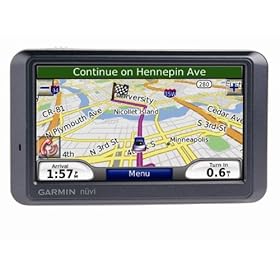— January 8, 2008
Garmin’s nüvi 700 series brings two exciting new features — multi-destination routing and, “Where am I?/Where’s my car?” — to its popular pocket-sized GPS navigator lineup. As with all nüvis, you get Garmin reliab (more…)
Garmin nüvi 760 4.3-Inch Widescreen Bluetooth Portable GPS Automobile Navigator
Reading Time: < 1 minute
